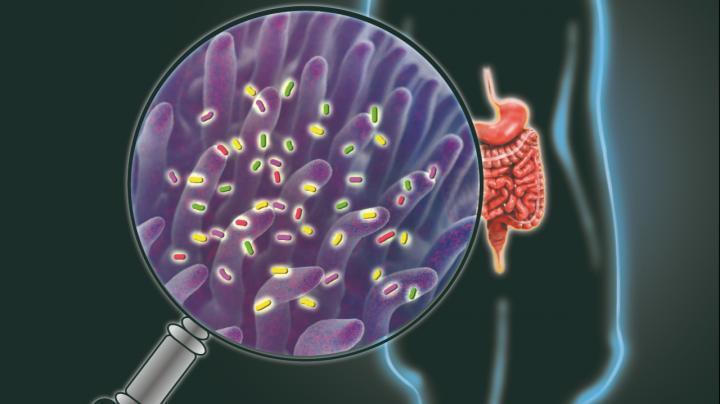The human microbiome is composed of bacteria, archaea, viruses, and eukaryotic microbes that reside in and on our bodies. These microbes have tremendous potential to impact our physiology, both in health and in disease. Research on bile acids has increased dramatically due to recent studies demonstrating their ability to significantly impact the microbiome.
An international team of scientists has developed a noninvasive diagnostic imaging tool to measure the occurring enzyme, bile salt hydrolase (BSH), inside the body’s gastrointestinal tract. They say their tool predicts the clinical status of inflammatory bowel disease, determines the efficacy of many commercially available probiotics, and evaluates whether certain types of prebiotics can increase bile salt hydrolase levels.
Their tool and findings were published in the journal Science Advances in a paper titled, “Noninvasive imaging and quantification of bile salt hydrolase activity: From bacteria to humans.”
“The microbiome-produced enzyme bile salt hydrolase plays a central role in human health, but its function remains unclear due to the lack of suitable methods for measuring its activity,” the researchers wrote. “Here, we have developed a novel optical tool based on ultrasensitive bioluminescent imaging and demonstrated that this assay can be used for quick and cost-effective quantification of BSH activity across a broad range of biological settings including pure enzymes and bacteria, intact fecal slurries, and noninvasive imaging in live animals, as well as for the assessment of BSH activity in the entire gastrointestinal tract of mice and humans.”
Their noninvasive method uses bioluminescence—a chemical reaction that produces light inside a living organism—to measure the level of bile salt-hydrolase activity throughout the entire gastrointestinal tract. This is the first example of the use of bioluminescent imaging probes in humans.
“Until now, we have not had any ways to noninvasively monitor activity in the intact gastrointestinal tract, given the unique chemical environment, variable distribution, and highly dynamic nature of the gut microbiota,” explained Elena Goun, PhD, an associate professor in the department of chemistry at the University of Missouri.
Goun believes their findings are exciting with the discovery related to prebiotics, which can be naturally found in foods such as whole grains, nuts and seeds, and fruits and vegetables.
“Prebiotics are often used in combination with probiotics to enhance their functions in the body,” Goun said. “We show for the first time that certain types of prebiotics alone are capable of increasing bile salt hydrolase activity of the gut microbiota, which among other health benefits has been shown to decrease inflammation, reduce blood cholesterol levels, and protect against colon cancer and urinary tract infections. In my opinion, this discovery is huge because the production and storage of prebiotics is less expensive than with probiotics.”
“Our imaging tool is a bioluminescent probe in the form of a capsule,” Goun noted. “When someone swallows it, it’s exposed to the intact gut microbiota while traveling throughout the harsh environment of a person’s entire gastrointestinal tract. After it passes out of the body, we can analyze a person’s stool sample. We can take the results from that analysis and correlate it with the amount of bile salt hydrolase activity within the human gastrointestinal tract.”
The tool may lead to better precision medicine treatments by providing a way for scientists to better understand how a person’s individual gut health is connected to the origin and nature of human diseases.
“This is the first example of the use of bioluminescent imaging probes in humans,” Goun said. “The gut microbiome plays a huge role in various health issues such as cancer, diabetes, obesity, Parkinson’s disease, depression, and autism, and now, this new tool will help us better understand the relationship between the gut function and these diseases. In addition, it will allow us to develop more effective probiotics and prebiotics to improve gut health.”



